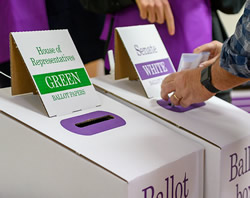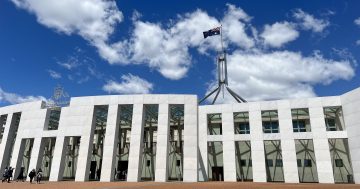 The Commissioner of the Australian Charities and Not-for-profits Commission (ACNC) has joined the conversation in the role charities can play in the lead-up to this month’s federal election on 21 May.
The Commissioner of the Australian Charities and Not-for-profits Commission (ACNC) has joined the conversation in the role charities can play in the lead-up to this month’s federal election on 21 May.
The Commissioner, Gary Johns said the recent discussion and debate surrounding the activities of charities highlighted how important it was for charities to link clearly their activities and their purposes.
“Much of that discussion has centred on what is or isn’t allowed in situations where charities, politics and elections intersect,” Dr Johns said.
“A charity’s activities must be carried out in aid of, or to support, its charitable purpose,” he said.
“This purpose is the reason it operates and the reason it is granted charitable status and may receive benefits like charitable tax concessions.”
Dr Johns said a charity’s activities may include advocacy and campaigning, “of that there is no doubt”.
He said charities were free to advocate or campaign for or against a position or an issue – for example, around a change to the law or a policy debate.
“They can sing and shout from the rooftops about it, even in the lead-up to a federal election,” he said.
“But that singing and shouting – that activity – must be in line with the charity’s work, and must further its charitable purpose.
“And that activity must not cross the line into areas of concern, a consideration that is especially important in the lead-up to a federal election.”
Dr Johns said it was not just ACNC rules that a charity and its people should be aware of, there were issues beyond ACNC compliance that could have an impact.
Generally, he said, there was strong community and public interest in the area where charities and politics intersected, but during an election period that interest was even greater, and there was greater scrutiny from the community, in the media and on social media.
“A charity whose activities are perceived as crossing the line (such as a representative of a charity using their charity name to endorse a political candidate on promotional material), or that veer far from the purpose for which it was established, runs the risk of alienating supporters,” he said.
“If the wider community – including donors, supporters and volunteers – see a charity’s actions, and the charity itself, as partisan, it may damage the charity’s reputation or result in a loss of support from donors and volunteers.”
Dr Johns said it could be hard for a charity to regain lost reputation, especially if it had worked to build its reputation and community standing over a long period of time.
“It can have a significant or prolonged impact on a charity, and reduce public trust in the sector as a whole,” he said.
He directed charities to the ACNC’s Charities, elections and advocacy guide which he said explained the difference between a charity’s activities and its charitable purpose,
“As well as providing a useful summary of issues surrounding advocacy and campaigning – particularly during an election period,” Dr Johns said.
The ACNC guide can be accessed at this PS News link.











